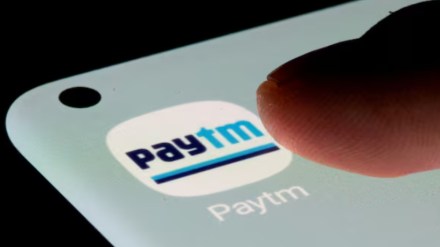One 97 Communications, the parent company of fintech major Paytm, on Friday posted its fiscal first quarter earnings wherein it reported a widened loss of Rs 840.10 crore in comparison to a loss of Rs 358.40 crore posted during the corresponding quarter of FY24.This was due to the continued impact from the RBI curbs that led to shutting down of Paytm’s payments bank business. The company posted revenue from operations at Rs 1501.60 crore, down 35.9 per cent as against Rs 2341.60 crore recorded during the first quarter of previous fiscal year.
RBI had, earlier in January this year, placed restrictions on Paytm Payments Bank Limited (PPBL).
In order to manage the escalating losses, Paytm had launched a plan to save Rs 400-500 crore annually on employee costs. The company said that it has decreased the employee expenses by Rs 151.9 crore QoQ and by Rs 153.6 crore YoY. “The company has achieved 9 per cent reduction quarter-on-quarter in employee costs, as part of its goal to save Rs 400-500 crore annually. We expect these costs to reduce in the coming quarters. We remain committed to be disciplined around our overall cost structure,” it said.
In a regulatory filing, Paytm said, “We expect revenue and profitability to improve going forward. Net payment margin was Rs 383 crore, with payment processing margin above 3bps (no UPI incentives booked during the quarter as it gets paid in Q4 of the financial year). Financial Services revenue was Rs 280 crore, with majority of loans from the distribution-only model. Marketing services revenue was Rs 321 crore, lower than last quarter mainly on account of seasonality of events business.”
In a statement, Paytm said that the company continues to have a strong balance sheet with Rs 8,108 crore of cash on books. It also holds stock acquisition rights in PayPay Corporation (5.4% stake, once exercised).
Paytm Q1 earnings: Performance across business verticals
In Q1 FY 2025, Paytm’s payments services reported revenue of Rs 900 crore. It was impacted due to: 1) Disruption of PPBL products; 2) Temporary impact on account of conservative approach taken for certain businesses; and 3) Temporary disruptions in operating metrics (MTU, merchant base, GMV). Net payment margin was at Rs 383 crore, with a GMV of Rs 4.3 lakh crore. Paytm said that the merchant subscriber base for devices reached 1.09 crore as of June 2024. Subscription revenue per device, it added, has bottomed out in Q1FY2025 and is expected to increase on back of new merchant signups, reactivation of merchants and redeployment from inactive merchants.
Further, during the quarter in review, revenue from the financial services came in at Rs 280 crore. Paytm said that the value of Merchant Loans distributed during the quarter was at Rs 2,508 crore. It added that about 50 per cent of loans distributed are to repeat borrowers and the average ticket size has increased to around Rs 225,000 from Rs 190,000 a year ago, with an average tenure of 13 months. PErsonal loans, meanwhile, recorded a value of Rs 2,500 crore during Q1. The average ticket size has remained stable at approximately Rs 135,000 from a year ago, with the average tenure of 16 months, it said.
Revenue from marketing services was recorded at Rs 321 crore. Paytm’s marketing services business primarily includes advertising, ticketing (travel, movies and events), credit card distribution, and deals & gift vouchers. The GMV for ticketing, deals & gift vouchers, etc., was at RS 2,817 crore and has remained stable QoQ. Paytm said that it continues to see strong growth in the travel segment, driven by partnerships and innovative travel solutions. Meanwhile, credit card distribution continued to scale, with 12.8 lakh activated credit cards as of June 2024, compared to 7.5 Lakh last year.
Paytm spokesperson said, “We are seeing a rebound in our merchant operating metrics and stability in our consumer base, demonstrating our path to recovery. This also indicates the continued confidence of our merchant partners and consumers on our platform, and we are grateful for the trust of our stakeholders. With Q1 illustrating the full impact of recent disruptions, we are confident in our trajectory towards sustained growth going forward.”
